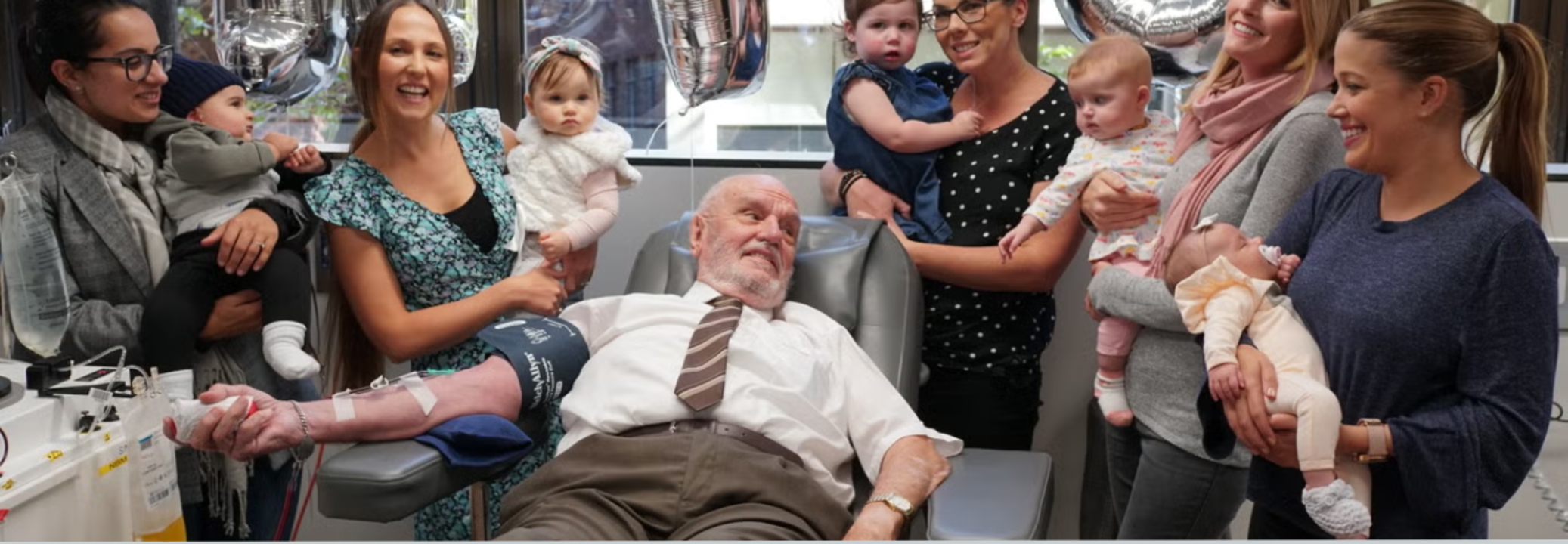James Harrison, Whose Rare Blood Saved Over 2 Million Babies, Dies At 88

Image Credit: Australian Red Cross Lifeblood
SummaryJames Harrison’s rare blood donations saved over 2.4 million babies. His plasma contained Anti-D antibodies, preventing rhesus disease in newborns. Less than 200 Australians donate Anti-D, helping 45,000 mothers and babies annually.
End of Article
